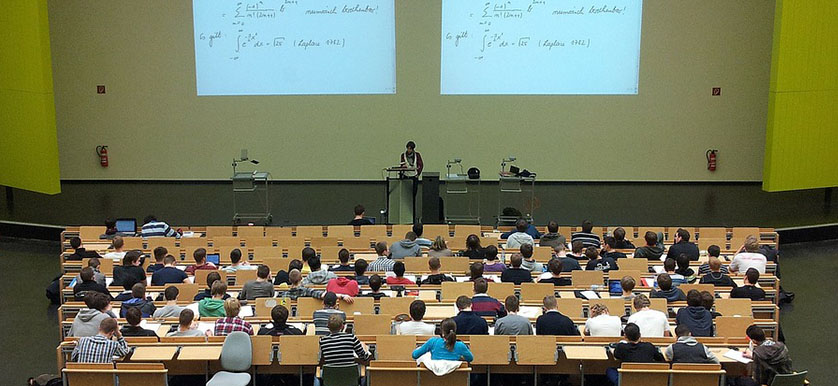Performance management in the educational sector
Applied performance management sub- processes, tools and techniques within an organizational environment are a powerful driver for business development. However, it is not enough to operate randomly with these tools, they have to be aligned and integrated within a performance management system. When such aspect is not a priority in performance management inputs, outputs and outcomes will aim for different goals.
Within the educational industry, more specifically, in relation to higher education frameworks, investments are made on a continuous basis and resources are permanently allocated for performance management systems employed by universities. The reason behind this large input is the strong desire to simultaneously improve both teaching methods and research methodologies performed within this educational framework.
Using performance management sub-processes, tools and techniques in order to improve teaching and learning, means complying with current performance trends within the business market. The approach is further cascaded to operational, teams ad individual level. When performance management is incorporated as part of a trend and not following a needs analysis or any other form of assessment, the individual level of performance management is the most negatively impacted as it involves each employee. The Critical Studies in Education journal, published a study of interviewed Australian academics, presenting their perspective upon how current performance management is affecting their work activity. They claim that the implementation of performance management leads to opposite results as compared to expected outcomes, as the focus is mostly on the measurement of number of published articles. Academics perceive that their performance is not truly revealed and their current work activities become less productive.
Same interviewees acknowledge the fact that measurement is a needed, relevant, sub-process of the performance management system and the fact that their work and, implicitly, their performance, has to be submitted to an objective form of evaluation.
No matter the context, excluding the measurement process from the performance management system in order to reach expected outcomes, is, by no means, a viable option. How measurement is performed, how priorities are being allocated and targets set is what impacts the desired results. With the full acknowledgement of the need for performance measurement, and academics’ openness to be subjected to it, the remaining matter for the academics is not the performance management system integration itself, but the integration of it within universities.
Australian academics did not specify, during their interview, the main objectives of the currently-employed system, they lacked an overall perspective on performance, but only regarding the output that was expected from them. In this context, in order for academics to gain a full understanding on the main goals of the university and how they contribute to their achievement through their daily work is an accurate cascading of the goals and KPIs at the individual level.
Another important part of a successful management system is the agreement of the academics upon the allocated objectives and KPIs. Through a rigorous approach, a full understanding is being gained and perspectives similar to current ones fade away.
Based on the Critical Studies in Education publication which display academics’ perspective, presently, universities’ measurement methodologies are limited to few relevant indicators, thus determining counterproductive outputs. They highlight that, if the focus is on the quantity of published papers, instead of on the quality of the research behind the publication, the worst case scenarios can lead to fraud encouragement, which, in turn, impacts the credits given to their professionalism. The academics’ perspective goes even further and considers the indicators that highlight quantitative aspects can be, in this context, metrics rather that key performance indicators, as they do not impact the main desired outcome, which is the students’ learning experience and connected processes. They do not aim for the exclusion of the metrics from performance management systems within the academics field, but rather the importance allocated to such indicators. This reconsideration is what will determine the change of focus from outputs such as published papers, on outcomes, such as successfully educated students and innovative research.
As every other organization, different universities may as well have different approaches upon performance management and measurement. An effective approach upon performance criteria within universities comes from the US. Academics. Here, despite the extended time spent in service, academics still remain actively involved in teaching activities and lessons. Such an aspect may appear normal but, in reality, recognition for academics stems from the KPIs placed on research and publications, instead of the metrics that monitor time of active teaching and student learning processes.
Academics view this imposed framework, due to its allocated KPIs, as inconsiderate towards their competences. As their main purpose to teach and successfully pass over knowledge and competences to future generations steps into shadows, research reflected through paper writing receives increased attention. If performing within an organization previously implied, above all, independence and passion for teaching, current academic environment imposes constant stringency and discipline.
At the moment, a suitable system for both academics’ needs and university standards also implies actively involving students in research and paper writing processes, but not only in the administrative, back-end or front-end parts, but rather fully engage them into the ongoing research process, allowing them to bring their contribution through ideas and experiments.
References:
- Ozga, J. (2003), Measuring and managing performance in education
- Rabovsky, T (2013), Using performance data to manage at public universities
- Sadiq, R. (2010), Performance management tool for education
Image source:

Tags: Education performance, Higher Education, Performance Measurement






